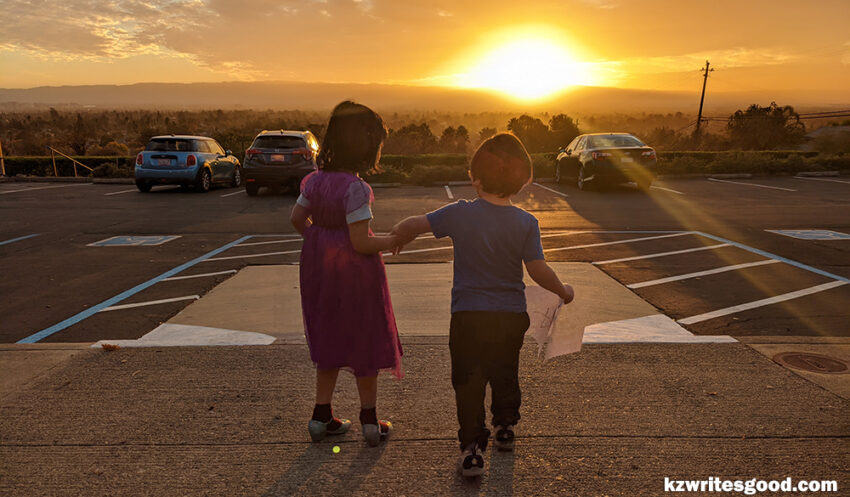I was driving my daughter home from school one afternoon when she asked me a question I wasn’t expecting from a six-year-old.
“Daddy,” she said, “Am I going to die?”
I had mentioned something about death to my daughter a few days prior while answering some other question of hers. Whatever I said, I guess it stuck with her. I don’t believe in sheltering my children from the truth if they ask me an honest question, so I gave her an honest answer.
“I hope it won’t happen for a long time, kid. But yes, everybody dies.”
“I don’t want to die,” she said. The fear in her voice was genuine. She was nearly ready to cry.
My heart ached to hear the anguish in her voice, to bear witness to my young daughter’s first confrontation with existential dread as she cried out, staring into the abyss. In that moment, my mind was deluged with a flood of intrusive thoughts of the many horrible ways a child’s life could come to a premature end. I mourned my daughter a hundred times over in a cascading multitude of terrible possibilities. I had a sudden urge to pull the car over and to hold my daughter tight. Looking back, a part of me still thinks I should have done so.
“I know it’s something that’s not very nice to think about. But death is an important part of life. Life wouldn’t mean nearly as much if it just went on forever.”
“I want to live forever.”
“Maybe you will then.”
“Are you going to die?”
“Yes, one day I will.”
“Are you going to die before me because you’re older?”
“Probably, yeah.”
“Ha ha,” she taunted playfully. “You’re going to die first because you’re older.”
“Sick burn, kid. You sure gave me the what for.”
“Can I play with your phone until we get home?”
“Sure.” I said, and I reached into my pocket and handed her my phone. That was a large enough dose of reality for one day. When you pull yourself away from the void, sometimes the only way to put your mind at ease is to think about something else just long enough to numb yourself to the inevitability of what comes tomorrow.

